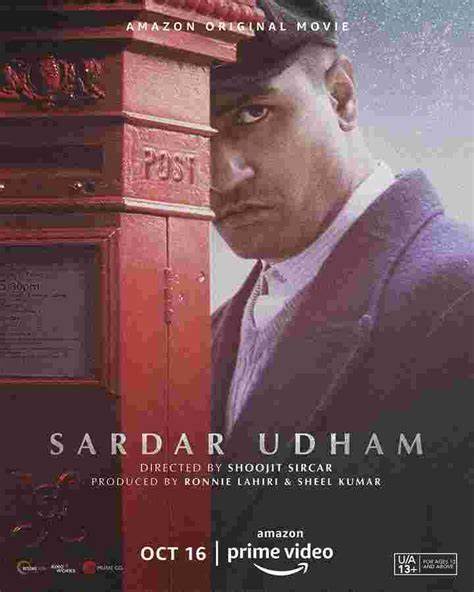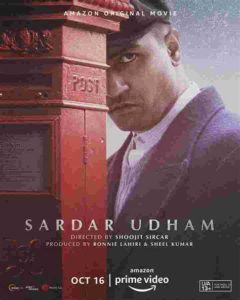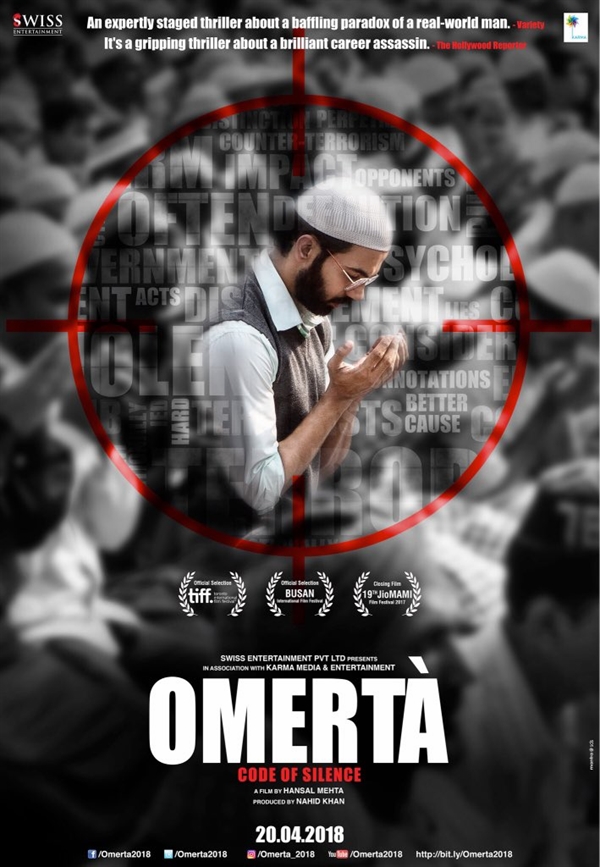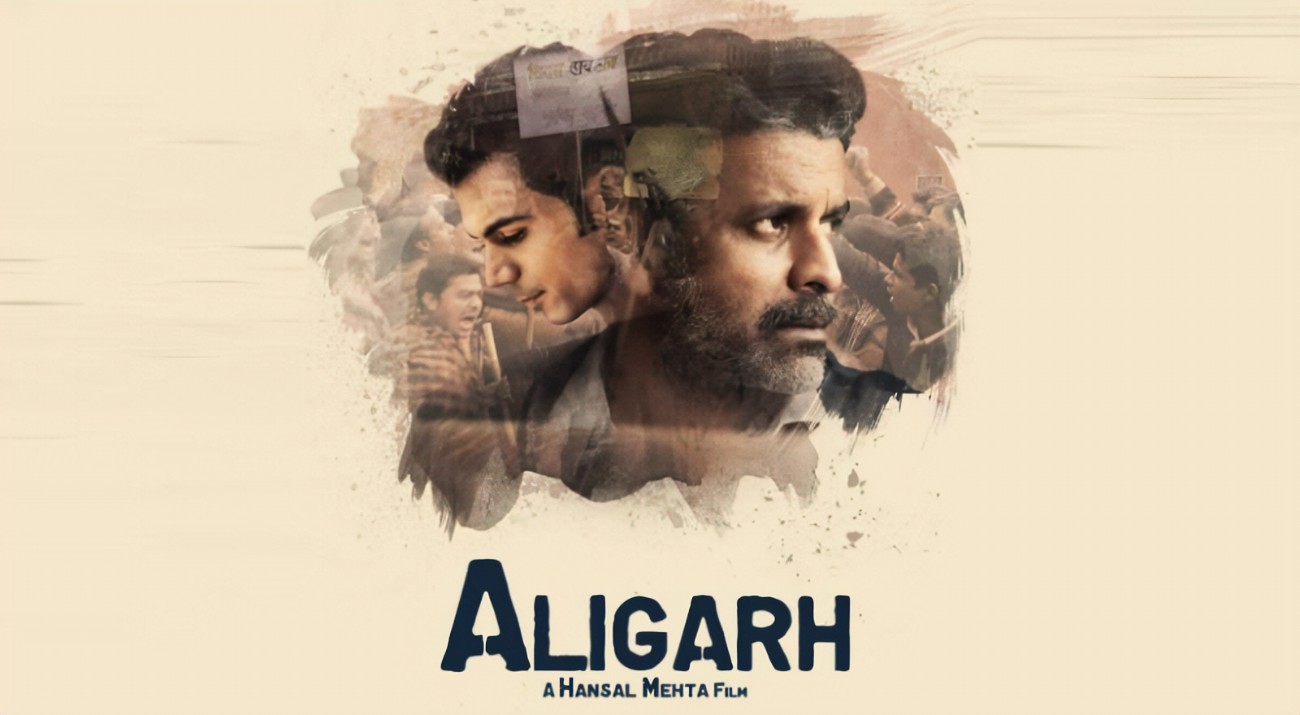
Bollywood Film Review “Sardar Udham”
WATCH THE TRAILER HERE
First, the Recap:
Endeavoring towards reprisal. The feeling within us can be overtly overpowering when we’ve experienced or witnessed a grievous, excessively unconscionable act against those whom we are directly tied to, ushering in that undeniable desire to right the wrong by any means necessary. Yet, when this is the rage-fueled path we deem correct in order to right it all, can we make others understand the potency of our reasoning and belief? For Punjabi Sikh Udham Singh (Vicky Kaushal), it is this inwardly boiling quest to fulfill his view of justice that propels him to seek out the men responsible for ordering and then carrying out the Jallianwala Bagh massacre in Amritsar, which remains an agonizingly traumatic event that has tormented his memory–and has gone unpunished–for far too long. Will his venture into vengeance grant Udham peace or simply become a further reminder of the person he’s become because of it all?
Next, my Mind:
Originality. It is not necessarily the most used word when describing the world of cinema, as we see so much retreading of material oft explored and yet not freshly presented in order to at least make it truly unique. Then there is South Asian director Shoojit Sircar, whose award-winning feature films span not only an expansive scope of themes and genres, but offer that elusive inventive resourcefulness that allows efforts like “Vicky Donor“, “Madras Cafe“, “Piku“, and “Pink” to prove themselves more than worthy of the accolades each has brought this daring artist into the spotlight. Yet one more example of the deep roster of talent found in South Asian cinema, it also remains this critic’s hope that creatives like Sircar have the opportunity to shine beyond Bollywood’s already well-established pageantry and make its mark on U.S. audiences so that we as American moviegoers can expand our own film palettes and learn that Hollywood is by far not the only wealth of quality filmmaking out there, but even that some just might be doing it with more imagination and refreshing sense of that highly needed word I began with. Sircar is assuredly one of those directors to watch.
Compellingly arresting, engagingly dramatic, potently affecting, and wholly based on true events and the people involved, this biographical feature film from director Sircar, writers Shubhendu Bhattacharya and Ritesh Shah, producers Sheel Kumar and Ronnie Lahiri, and executive producers Kumar Thakur, Lera Zingarevich, and Elena Belkova provides a bluntly forthright portrait of one man, his convictions, and his unfaltering pursuit of justice against the primary men responsible for an unequivocally jarring atrocity committed by the British in Amritsar on April 13, 1919 known, as stated above, the Jallianwala Bagh massacre. It is an event that becomes the catalyst for the film’s protagonist to start down a path of association with revolutionaries who in turn become his sole source of means to carry out the actions he has deemed utterly necessary to see inner and, in his mind and those whom he “serves” with, national redemption against tyranny.
The narrative initially chronicles Singh’s adult life in Punjab, India, his initial arrest for activities he’s associated with that find him incarcerated until 1931 when he then flees to Afghanistan and Russia before finally arriving to London in 1934, officially initiating his own personal jihad against the two men behind the massacre and bring them to his, and those he’s in league with, ideas of required justice. In the meantime, the film also delves into the British police officers, lead by a dogged, relentlessly persistent inspector, who are placed with the task of hunting Udham down, though the latter makes more than sure his presence is known when he carries out a very public assassination of the man who actually ordered the massacre. From here, we then begin to see more backstory intermixed with the interrogation and imprisonment of Udham in London, the inspector’s efforts to absolutely understand Udham’s motives, and all the people and THE event that shaped Udham into the man he became. We do get to see brief instances of where Udham was a pleasantly happy man involved with someone whom he loved, and this seems like such a contrary look at him compared to what ended up guiding his path.
It’s an examination of the very nature of India’s people simply but adamantly protesting what they saw as an imperialistic presence in their country and the unwavering passion they had to see freedom from being ruled as such, the misinterpretation/mishandling of said arguments and dissents, the rationalizations/justifications by the leadership of the occupying British as to what needed to happen to send what they felt was a necessary message, the rising up of the militant movement to wage war against the invaders as they saw it, and the power of unquestionable, consummate resolution and deep-seated perspective of what needs to change and how to usher it in when it seems no one else is listening or taking needed actions. What strikes you, just being transparent, is that despite wishing to see Udham as an insurgent/extremist, you cannot help but fully empathize with his overall drive for redemption and his consuming love of country that created the circumstances and choices he makes, and that strength of stance is actually quite commendable as a whole, only in that he was a person who KNEW what he stood for and maintained that without hesitation.
This isn’t some assertion of “praise” for subversive agitators, etc by ANY stretch of the imagination, but it’s more that the film does paint a more sympathetic illustration OF why Udham chose the ways he did. The visual depiction of the massacre itself is nothing short of soul-crushing, a picture of unfettered violence in the name of creating fear and (supposed) control, with the aftermath of it just as impactful and horrifying as the event itself. Again, we CLEARLY comprehend what Udham saw as a young man, how it influenced him, and therefore how it formed his mindset with definitive forcefulness. Speaking of force, Kaushal is nothing short of a force of nature through his turn as Udham, a witness to terror as a young man and now, as an adult, a man on a very specific mission to bring those responsible for it to a harsh and deserved conclusion as recompense for their agreeing to and enacting such an atrocious incident.
Kaushal infuses the character with a wonderfully executed blend of eerie calmness and explosive passion that just commands the screen in every scene he’s in, giving us a well-rounded and highly realistic portrayal of unapologetic assertiveness and intent that hits you full on and allows the actor to transport us into the very soul of this figure from a deeply pivotal point in India’s history while under British rule. Shaun Scott plays Lt. Gov. of Punjab Michael O’Dwyer, the British commander who gave the order itself for the massacre to take place, and seeing his backstory as it relates to Udham’s crusade takes on some surprising twists even as O’Dwyer seemed totally unrepentant of making the choice he did. Stephen Hogan is Detective Inspector John Swain, the British lawman who takes charge of trying to corral Udham and any associates when events moved to London, trying to understand his quarry’s reasoning along the way. Andrew Havill plays General Reginald Dyer, the British officer who carries out the massacre itself with his men.
Kirsty Averton is Eileen, a previously established contact of Udham’s in London who’s affiliated with the Communist party and provides certain information to Udham when called upon but also becomes a small voice of conscious for him at times as well. Other key supporting appearances are made by Amol Parashar as the charismatic Indian revolutionary Bhagat Singh, Sam Redford as one of Swain’s partners, Inspector Deighton, Tim Berrington as Hutchison, the lawyer assigned to Udham’s case in London, Mark Lingwood as British police commander Superintendent Sands, Simon Weir as King George VI, Tim Hudson as Churchill, Nicholas Gecks as Justice Atkinson, the presiding judge at Udham’s trial, Banita Sandhu as Udham’s love Reshma whom he suffers the loss of. Additional appearances are made by Ritesh Shah, Jogi Mallang, Sanket Aggarwal, Avik Mukhopadhayay, Jugraj Sona, Kuljeet Singh, Rakhi Menon, and a host of others.
So, in total, “Sardar Udham” is a film of poignant, intense, and profoundly acute purpose, viability, and provocative relevance that should most certainly resonate with not just past history, but also with our current times of volatility we still see occurring, even if under different circumstances and events that take place in a stormy world. This is a tale not of people who actually wished to be bloodthirsty, but just wanted freedom from being so overtly exploited by a minority in power that sadly chose to employ fear as their tool of control and “guidance” rather than equity and understanding. Let us hope we in this current reality choose to seek more of the latter than the former.
As always, this is all for your consideration and comment. Until next time, thank you for reading!




